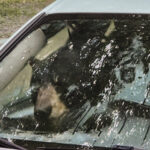Republican Sen. Mel Martinez of Florida is in a position to help move along a bill that could lower property insurance rates in disaster-prone states, but hasn’t been aggressive enough in doing so, said the two Democratic House members sponsoring the legislation.
It’s a charge Martinez calls ludicrous.
Martinez has said that the bill to set up a national insurance backup fund has little chance of getting through the Senate, but Reps. Ron Klein and Tim Mahoney, both from Palm Beach County, Fla., say he is actually a key to getting it passed.
“We’ve got to get Martinez much more involved in this,” Klein said.
The bill passed the House in November, but has been sitting in the Senate, where it needs initial approval from the Senate Committee on Banking, Housing, and Urban Affairs. Martinez is on the committee. Klein and Mahoney said the committee chair, Democratic Sen. Chris Dodd, is willing to consider the proposal.
“Sen. Dodd, who comes from Connecticut, the land of insurance, said he thinks that there’s a lot of merit to it,” said Klein. “He said ‘I can bring it up in the committee, and we can probably pass it out of the committee, but it would certainly go a long way if Sen. Martinez was more actively engaged in pushing it.”‘
Mahoney said Dodd told him the bill needs two more Republicans to support it in committee.
“If Sen. Martinez signs on, there’s one,” said Mahoney. “Given the fact that he’s a very close political ally of the president and used to be head of the Republican Party, I think that he might be able to twist somebody’s arm.”
After reading Klein’s and Mahoney’s remarks, Martinez approached Dodd on the Senate floor Monday afternoon.
“He has a very different recollection of this conversation,” Martinez said, adding that he has co-sponsored a similar bill along with Democratic Sen. Bill Nelson of Florida. That measure is also co-sponsored by Democratic presidential candidate Sen. Hillary Rodham Clinton of New York.
“To suggest that I am somehow or in any way an obstacle to this moving forward is ludicrous,” Martinez said.
Dodd did not respond to several requests for an interview left with his office.
The bill would allow the catastrophe fund to be built through private investment. Investors would take the chance that a Category 5 hurricane wouldn’t make a direct hit on an area like Tampa Bay, or that a major earthquake wouldn’t be centered in a city like San Francisco. If a huge disaster did not strike, they would get their original investment and interest returned after the contracted period, likely between two and four years.
If however, a disaster is so large that state catastrophe funds and private insurance cannot cover losses, investors could lose some or all of their investment, depending on how much of the federal fund is depleted.
That would only happen if a so-called 100- to 250-year event _ such as the worst hurricane, earthquake or tornado that could be expected over that period _ struck a major population center.
But because insurers have to plan for the possibility of such an event by purchasing high-priced reinsurance, premiums are high in places like Florida, if policies are available at all. The hope is that the national fund would create a cheaper reinsurance option and thus bring down premiums and make coverage more available.
The bill also would create a loan program for states that deplete their catastrophe funds so they can still handle claims.
Previous attempts to create a national fund have failed because proposals involved adding a surcharge to all property insurance policies to build it, and representatives in states that are less prone to disasters did not want their residents paying more.
The new proposal doesn’t have the support of the Property Casualty Insurers Association of America, though the group does see some merit to the loan program included in it, said spokesman Cliston Brown.
Martinez said there are higher ranking Republicans on the Banking Committee who are firmly opposed to the bill and that Klein and Mahoney overestimate his ability to change their minds.
“I have supported any and all versions of a catastrophic fund,” said Martinez, who along with Nelson, is pushing for an insurance study he hopes will sway people to the idea.
Even if it did get through the Senate, President Bush’s administration is opposed to the plan, as is one of his potential successors, Republican presidential candidate John McCain. McCain, an Arizona senator, said during a visit to Florida this month that he would prefer for a solution to insurance problems to come from coastal states.
“I’m a federalist. I want to do what the governors recommend, rather than the governors do what the federal government recommends,” McCain said.
Democratic candidate Sen. Barack Obama of Illinois agrees with Clinton that it’s a good idea.
Mahoney predicted Bush could rethink his position given the political importance of Florida in the presidential election.
“If we can get it out before the election, I think it would put the president in a really bad situation,” Mahoney said. “If that bill gets passed in the Senate and the president vetoes it, say goodbye to Florida for McCain.”
Topics Florida Catastrophe
Was this article valuable?
Here are more articles you may enjoy.


 Fortune 500’s Insured Losses for CrowdStrike Could Reach $1 Billion: Parametrix
Fortune 500’s Insured Losses for CrowdStrike Could Reach $1 Billion: Parametrix  Black Bear and Cub Destroy Car After Getting Trapped Inside
Black Bear and Cub Destroy Car After Getting Trapped Inside  Insured Losses From CrowdStrike Outage Could Reach $1.5B, CyberCube Says
Insured Losses From CrowdStrike Outage Could Reach $1.5B, CyberCube Says  Allstate’s National General Sued by DOJ Over Alleged Force-Placed Insurance ‘Scheme’
Allstate’s National General Sued by DOJ Over Alleged Force-Placed Insurance ‘Scheme’ 

